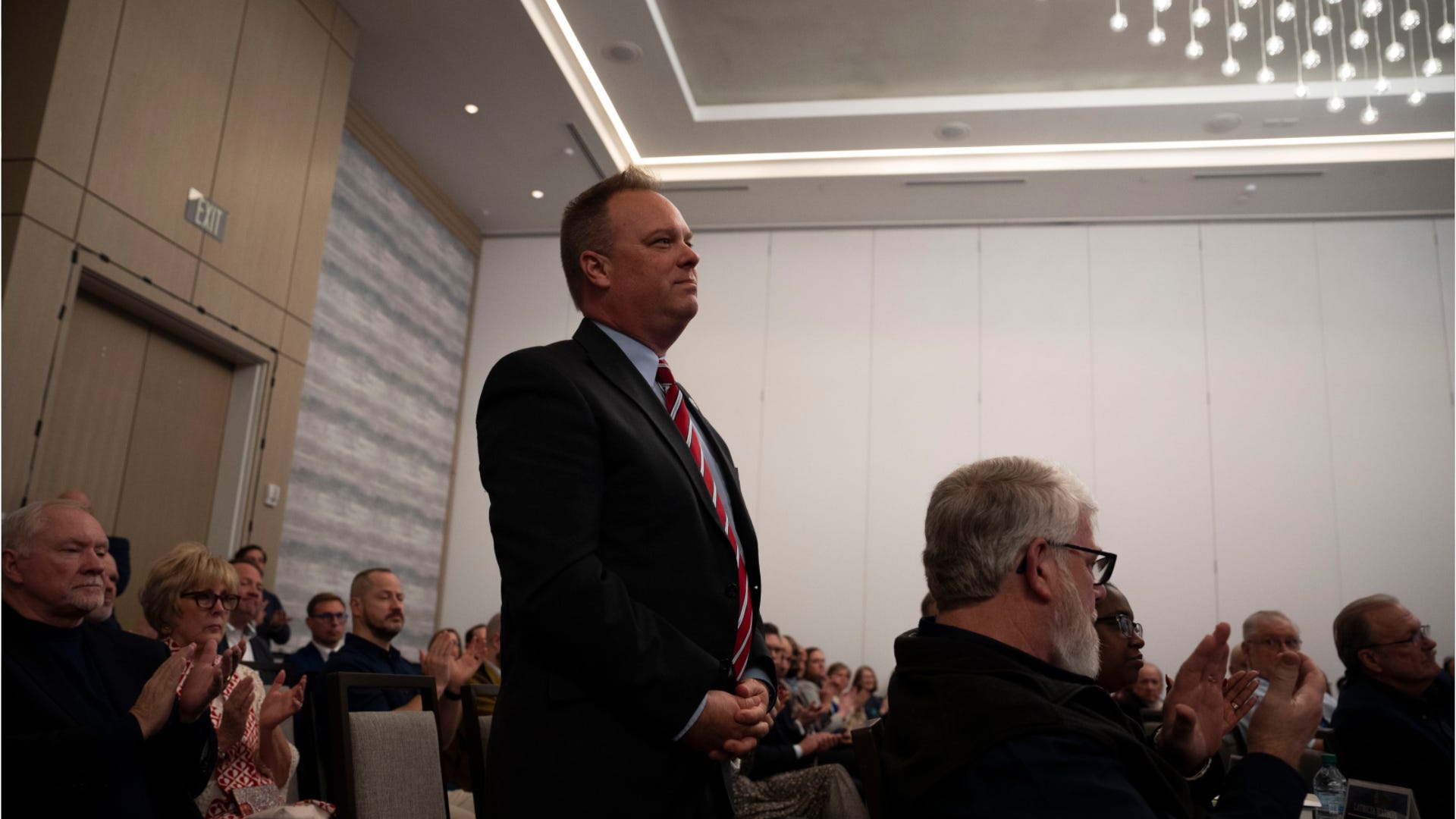Southern Baptists vote to seek repeal of historic same-sex marriage ruling

- The resolution approved seeks to reverse Obergefell v. Hodges as the historic U.S. Supreme Court decision legalizing same-sex marriage.
- The June 10 vote by the nation’s largest Protestant denomination represents a doubling down on issues of gender and sexuality.
DALLAS − The Southern Baptist Convention passed a resolution supporting a concerted effort to reverse Obergefell v. Hodges as the historic U.S. Supreme Court decision legalizing same-sex marriage approaches its 10-year anniversary.
The June 10 vote by the nation’s largest Protestant denomination represents a doubling down on issues of gender and sexuality as the predominant group of evangelical Christians continues to move sharply to the right and signals the SBC’s hopes of replicating the successful campaign to overturn Roe v. Wade.
Whether the latest vote will move the needle on gay marriage, a right backed by a strong majority of Americans, remains to be seen. Last year, the SBC passed a resolution condemning the use of in-vitro fertilization, only to see President Donald Trump sign an executive order earlier this year seeking to protect IVF access and reduce its out-of-pocket and health plan costs.
Reversing the Obergefell ruling is one of numerous issues related to sex, gender and marriage encompassed by the resolution. Among other things, the resolution affirms that there are only two genders, defines marriage as between a man and a woman, says families are designed for procreation and that human life is sacred “from conception to natural death.”
The measure describes these declarations not just as Christian convictions but as “universal truths” “essential for a healthy, just and free society.”
“Our culture is increasingly rejecting and distorting these truths by redefining marriage, pursuing willful childlessness which contributes to a declining fertility rate, ignoring and suppressing the biological differences between male and female, encouraging gender confusion, undermining parental rights, and denying the value and dignity of children,” the resolution says.
The resolution also opposes commercial surrogacy and normalization of “transgender ideology,” saying policies that deny the “biological reality of male and female” are legal fictions. It opposes laws and policies compelling people “to speak falsehoods about sex and gender” and calls for the permanent defunding of Planned Parenthood.
Last year, the convention narrowly rejected a constitutional ban on female pastors, a measure that required a two-thirds majority to pass. The SBC has disfellowshipped seven churches – including Southern California’s megachurch Saddleback Church – for embracing egalitarian views on women in ministry as opposed to the complementarian position espoused by the convention, which holds that men and women have different roles.
The Supreme Court’s rightward swing and the election of President Donald Trump have emboldened the convention’s more conservative factions and Christian political activists, who see the moment as ripe for a shift in American jurisprudence.
“It’s time for us to take back our nation,” said Chad Connelly of Faith Wins, an organization focused on getting out the Christian vote, at a convention forum sponsored by the Danbury Institute, an association of Christian churches and organizations. “I believe we’ve been given an opportunity and the time is now.”
Resolutions are non-binding statements expressing the convention’s views on social and cultural issues. Other resolutions at past SBC annual meetings have reasserted Southern Baptist opposition to LGBTQ+ rights, though this year’s resolution was the most forceful articulation of their rebuke of the Supreme Court precedent protecting same-sex marriage.
Delegates, called messengers, overwhelmingly approved the resolution after little debate on its language.
A strongly traditionalist voice in the SBC, Denny Burk, proposed the language in the resolution that messengers ultimately approved. Burk is the president of Louisville-based Council for Biblical Manhood and Womanhood, an advocacy group that was behind two well-known, cross-evangelical statements opposing LGBTQ+ rights. The first statement was the Danvers Statement in 1987 and the second was the Nashville Statement in 2017.
“It is sinful to approve of homosexual immorality or transgenderism and that such approval constitutes an essential departure from Christian faithfulness and witness,” the Nashville Statement said. “Approval of homosexual immorality or transgenderism is a matter of moral indifference about which otherwise faithful Christians should agree to disagree.”
The new resolution approved by the SBC is another iteration of the Nashville Statement, but more forcefully attacks the U.S. jurisprudence protecting the LGBTQ+ rights that evangelicals oppose.
Burk told Paste BN that he was grateful the SBC had taken up his call to overturn Obergefell.
"We know that we are in the minority on this issue, but we want to be a prophetic minority," Burk said. "We don’t mind being countercultural when it comes to marriage. We want to bear faithful witness to God’s good design—that marriage is the conjugal union of one man and one woman."
Truth Wins Out, an LGBTQ advocacy group based in Delray Beach, Florida, denounced the vote.
“Today’s vote sends a destructive message—that the religious leadership of the SBC prefers denying equal rights to LGBTQ couples over recognizing their love and commitment,” said Wayne Besen, the group's executive director. “Rather than accepting the progress recognized by the Supreme Court in Obergefell, they’re doubling down on bigotry under the guise of theology.”
(This story has been updated to add new information.)